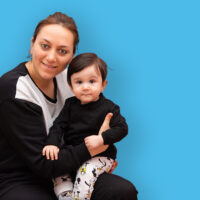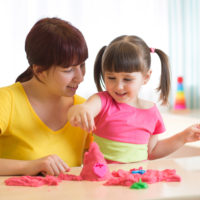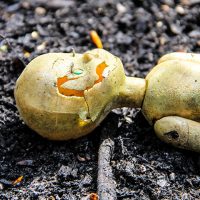Parenting
-

The Olympics’ loss is psychology’s gain
Discover what was Professor Gordon Harold’s somewhat unlikely start in psychology.
Read more -

In Conversation… Professor Kathy Sylva
Hear from Professor Kathy Sylva OBE on her research which has explored early education and children’s development, parenting interventions, and the impact of children’s centres on families.
Read more -

Parents should keep talking to boost infant language development
Children from low socioeconomic status (SES) backgrounds tend to have poorer language skills when starting school than those from higher SES backgrounds. Now, data shows that increasing the amount of “contingent talk”— whereby a caregiver talks about objects that an infant is directly focusing on — within an infant’s first year of life promotes a wide vocabulary later in infancy.
Read more -

-

Can we improve attachment or attachment-related outcomes in young children?
Summary of attachment-related research, interventions and outcomes from Professor Jane Barlow, ex-Editor-in-Chief of the Child and Adolescent Mental Health journal.
Read more -

A harsh parenting team?
Guest blog from Dr Rachel Latham, Postdoctoral Research Associate, King’s College London on whether high quality coparenting can buffer children’s behaviour from the negative impact of harsh parenting.
Read more -

‘The costs of Conduct Disorder and evidence for parenting interventions’ Madeline Marczak
Madeline Marczak on ‘The costs of Conduct Disorder and evidence for parenting interventions’. Recorded on 19 April 2019 at the North West ACAMH Branch as part of a conference on Conduct Disorder. ACAMH members can now receive a CPD certificate for watching this recorded lecture.
Read more -

Conduct Disorder
In order to view this content, you need to be an ACAMH member. Membership starts from just 11p a day. We hope you consider joining and being part of the advancement of child and adolescent mental health.Read moreCurrent members will need to be registered as a website user and log in, our guide to this simple process can be accessed here.
-

Help the parents, help the child: Developing support for parents of burn-injured children
Whilst many burns are minor and treated by front line NHS services, approximately 500 children under the age of 16 are admitted to hospital for specialist care every year in the UK.
Read more
Disclaimer: This is an independent blog and ACAMH may not necessarily hold the same views. -

A postcard from Malta
“It’s all to do with education and standards, and trying to bridge that gap”
Read more